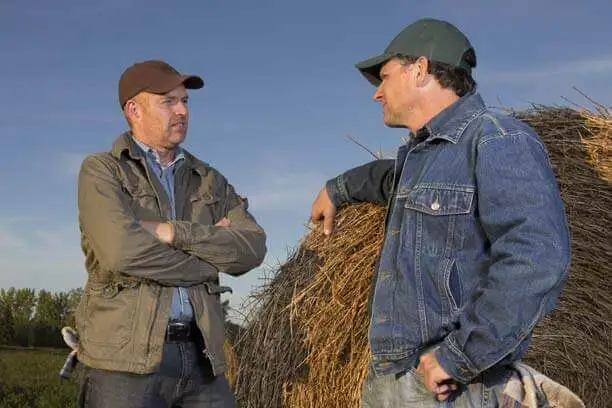Who Should Be on Your Farm Succession Planning Team?


Succession planning is not just about the future of your farm or ranch; it’s a blueprint to preserve your agricultural legacy and protect the heirs who will inherit it. Because of its complex nature, farm succession planning is not a DIY process. Instead, it’s essential to have a team of professionals who can advise you on best practices and put all of the paperwork in place to ensure a smooth transition.
Succession planning for farmers and ranchers is important, but it’s also complicated. Land, equipment, equity, your own retirement — there’s a lot to consider. Before you do, make sure you have a trusted team of professionals in your corner. An ideal succession-planning team includes the following nine people:
The stakeholders in the current operation need to be involved in all of the decisions relating to the future of the farm or ranch. Be sure to include your spouse, siblings and business partners who have financial interests in the operation.
Your farming heirs are an essential part of the succession planning team. Leaving heirs out of the process could mean making errors about who wants to take over the farm business and failing to incorporate their vision for how it will operate after you retire.
Different succession strategies have different financial and tax implications. An accountant familiar with farm and ranch businesses and transition planning can offer valuable advice about the best way to handle the transaction.
In addition to drawing up the necessary paperwork to transfer ownership, a lawyer can provide invaluable advice about the legal implications of various succession strategies. Succession is also an excellent time to update (or create) your estate planning documents.
You’ll need advice about how different kinds of insurance, including life and disability policies, will factor into the overall succession plan.
Succession is a financial transaction, and your lender can explain the financing options as well as the funds that are needed to transfer ownership of the land and/or equipment.
Before making decisions about transferring farm assets, investing funds from the sale of the farm, or dealing with debt, consult a financial planner. Your financial planner can also provide advice on living well in retirement.
Succession is a major decision. Farm consultants can help you evaluate the options, devise a succession plan and resolve conflicts within the family to ensure a smooth transition.
Changing the business structure of the farm, including transferring ownership to a successor, can impact your Farm Service Agency (FSA) payment eligibility and limitations. An advisor who is knowledgeable about FSA payment limit eligibility rules is an essential member of your succession planning team.
As a farm or ranch owner, planning ahead is a familiar part of the job. It’s never too early — or too late — to create a farm succession plan.
Through the succession planning process, you’ll evaluate the future of your farm or ranch, review future goals and choose a successor, develop a buy/sell strategy and provide guidance for continuing the operation. Be sure to sit down with your chosen successor(s) to talk about the transition and how involved you will be after you move away from the helm.
As you prepare to shift into retirement, don’t forget to consider ways to transition that will minimize your tax burden and manage debt. A farm succession plan takes outstanding debt and lines of credit into account and provides information on how to manage debt repayment and minimize the tax consequences of any transfers of ownership. Having a plan in place aids in a seamless transition and a beneficial financial outcome for you.
Planning for succession can seem overwhelming, but you don’t have to go it alone. At Farm Bureau, we’ve been helping farmers and ranchers manage their business since 1939 — contact us today to see how we can help you build a succession plan that works.